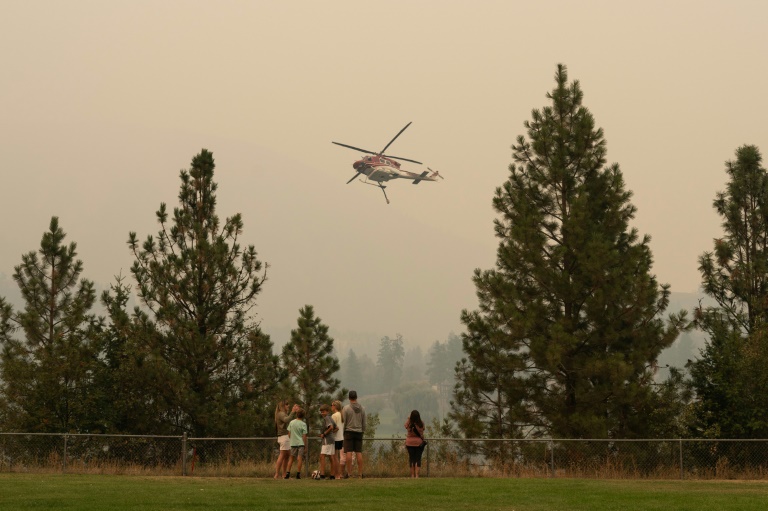Canada wildfires spread and merge as evacuations continue

Residents of western Canada scrambled to evacuate as raging wildfires encroached on two metropolitan areas
Kelowna – Two huge and fast-moving wildfires merged overnight in western Canada, threatening hundreds of homes and forcing continued evacuations in British Columbia province, officials said.
With flames now threatening the 3,500 homes near Shuswap, 150 kilometers (93 miles) north of the larger city of Kelowna, a total of tens of thousands of residents have now been ordered or urged to leave.
With northern winds continuing to fan the flames, two huge fires in the region merged overnight, destroying several structures in a region popular with tourists.
Across the province, with a state of emergency still in force, some 30,000 people have been ordered to evacuate while 36,000 others have been told to prepare to leave if necessary.
Bowinn Ma, the British Columbia minister of emergency management, emphasized the seriousness of evacuation orders.
“It is a matter of life and death,” she said, not only for the residents affected but for emergency personnel who have to go into danger zones to persuade reluctant residents to leave.
Canada’s Northwest Territories, north of British Columbia, are also facing a grave fire threat. The territorial capital, Yellowknife, has been surrounded by wildfires for days. Nearly all the city’s 20,000 people have left.
The region saw some respite after overnight rains Saturday brought a sharp drop in temperatures, but the fire threat was expected to grow again on Sunday, the authorities said.
Shane Thompson, environment minister for the Northwest Territories, emphasized Saturday that even when flames might not be visible, the fire “is active and enormous.”
Canada is experiencing a record-setting wildfire season, with official estimates of more than 14 million hectares (34.6 million acres) already burned — roughly the size of Greece. Four people have died so far.
Scientists say human-caused global warming is making natural hazards both more frequent and more deadly.
